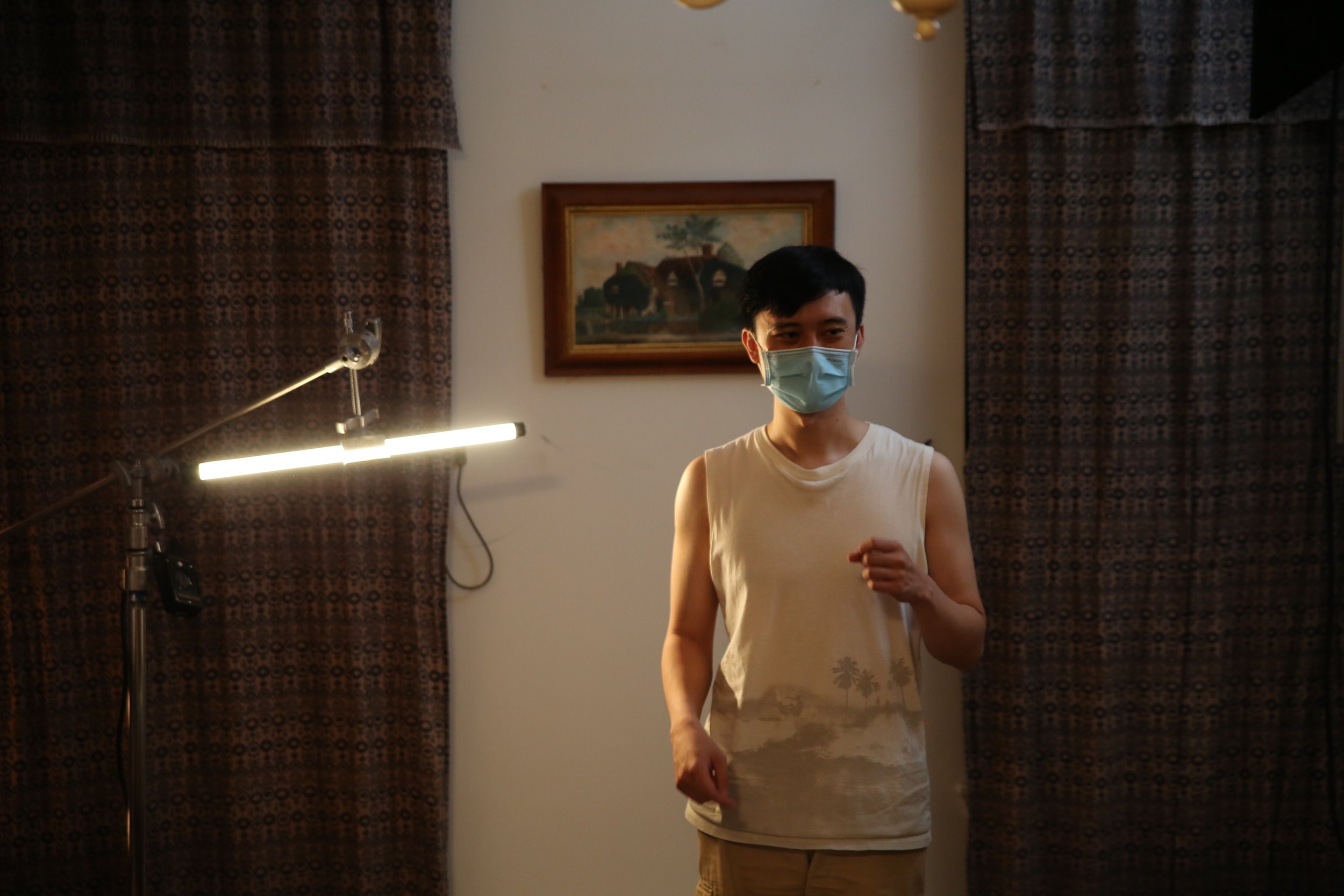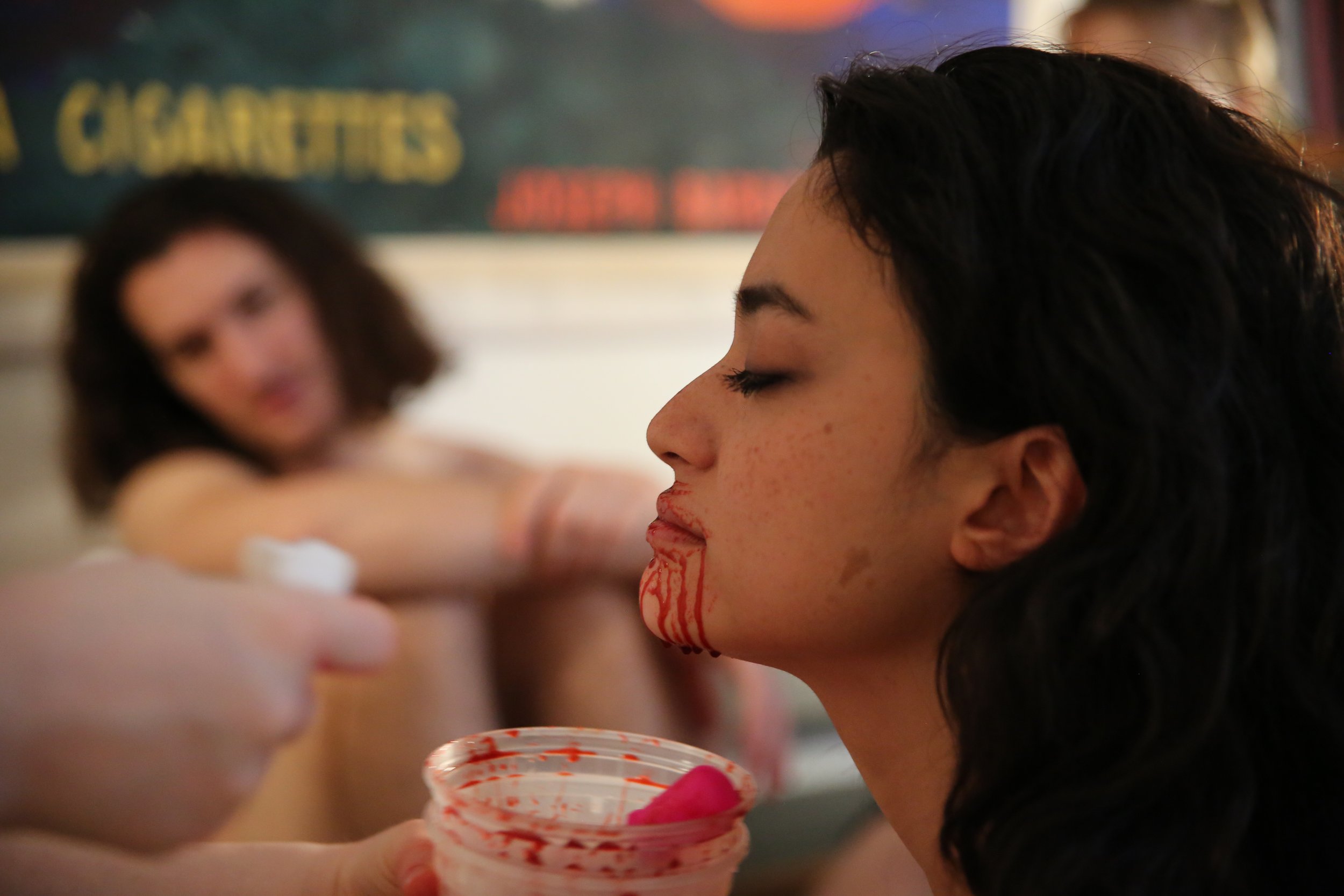Making Love Scary (and Funny): Kevin L. Lee Talks Genre-Bending in ‘‘ALY’’
Welcome Kevin, we are very excited to have you today with us to discuss about your work.
Who is Kevin Lihuan Lee and how did the passion for creating begin?
Film must’ve been the first thing I’ve ever fallen in love with. I grew up watching all kinds of films and they took me to places I’ve never been, physically and emotionally. I always lived in this imaginary bubble where I created stories and characters in my mind, and that art form went from drawing to writing to directing to criticism to producing. So I guess the passion to create stories and make films was there from the beginning! I was really lucky to come from a high school that had a media arts program, where they had their own filmmaking class and a handful of electives that gave a film spin on traditional school subjects. In that program, I got myself a camera and just filmed everything I could. Any sort of school project, homework assignment, or even an exercise was a chance for me to come up with a story.
Can you tell us about your previous work ?
During my senior year of high school, I worked really closely with one of my best friends and made a 45-minute thriller drama about a relationship between a woman and a man who has mysterious powers. It was like a cast of three and a crew of just two. We shot that film in total guerilla style with no budget over the course of months, and once it was finished, we held the whole screening event at the school. When college came around, I embraced writing and stepped into film criticism, where I attended festivals and studied the industry from a journalist perspective. It showed me that I loved every aspect of filmmaking, even the logistical ones, so I was inspired to jump into grad school to learn how to become a producer. During my time in the program, we were asked to write a handful of scripts, and so I challenged myself to write a different genre for each one. ALY was one of those scripts, and I think it was *the* script that really helped me discover my style and voice.
What inspired you to explore the intersection of romance and horror in ALY?
With ALY, I wanted to play with genre filmmaking. I knew I wanted to touch on horror from the beginning, but I wanted to do a couple things differently. The first was I didn’t want it to be full-fledged horror, just enough to spice up the story. And then the second was I didn’t want it to take itself too seriously. I want it to be horror that you can laugh at and have a good time. During the development and writing process, it became clear that I was going to center the horror element around a single date night, so it became a game in finding how genre tropes can heighten the human experience. I felt that when you take romance and intimacy and give it that horror twist, it just exaggerates our most awkward moments, and I realized that in that awkwardness, there’s a sincerity there that I think we can all understand to some degree. By the time I found these characters and discovered my ending, I was emotionally invested in their well-being and I wanted them to stay together, in this weird, dysfunctional-but-sweet way.
CONVERSATION ABOUT: "ALY"
In ALY, you focus on a single night in Michael and Aly's relationship. How do you approach storytelling that thrives on limited time and space?
I think that for a short film, you have so little time to tell a story and have all the emotional beats land in the way you want them to. So the benefit from having the story be about a couple is that you only have to think about one specific window of time in this relationship and one specific place that this moment is happening in. It was very clear to me that when it comes to Michael and Aly, that window of time has to be the pivotal moment where he learns her secret. And in terms of how he finds out, the “worst” way has to be in this physically and emotionally vulnerable state, the bedroom. It made a lot of sense to me, and frankly, it made me giggle a lot when I first thought of it. So the space naturally came together too, to essentially have the first half of the film by the living room (where the two characters are on somewhat equal footing) and the second half in the bedroom (where Michael is in a far more vulnerable position). It allowed me to focus my creative energy on developing Michael and Aly as characters, how they bounce off of each other in their dialogue, and how to get that awkward-but-sweet chemistry down.
How did you manage to direct your actors as a debutant director? As this was your first time the director's shoes what surprised you?
Though this technically wasn’t my first time directing actors, it was undoubtedly a leap in terms of size and scope that it still very much felt like a first-time experience. The immediate challenge was how to direct intimacy. Even on paper, the sex scene was a few pages long, so it felt like I was going to direct a sequence. When I had that first conversation with my producer, Aurora, agreed that the sex scene was the “elephant in the room” that we had to get right. And so I asked for a few things right off the bat: I asked for an intimacy coordinator, a female DP, and a crew demographic that leaned more towards women than men. This approach really helped us throughout pre-production, as it helped me cast my lead actress Angela and it led me to Max, who Angela recommended and was already friends with. It became this incredible collaboration with the actors because they were already very comfortable with each other. It made me learn how pre-production decisions – creatively and logistically – impact you down the road, so you gotta treat them with the same respect and importance as any other decision on set.
What challenges did you face in blending horror and comedy, and how did you ensure that neither tone overpowered the other? Any other shenanigans backstage?
The tone was definitely this seesaw that I had to constantly be aware of, and because of that, was very open to different ideas from Angela and Max and I encouraged them to ask me questions and try something different. We ended up doing different takes of the same line of dialogue here and there, because even if something appears to be working on set, you could potentially realize it isn’t working at all in the editing room. In the back half of the film, Michael and Aly have their “now what?” conversation, I originally had this whole part be a lot more lighthearted in the script. Aly spoke more like an “oops” tone on paper. But Angela asked to play it completely straight and sincere. She delivered her lines with this real sense of guilt, and it provided this beautiful context to what I already wrote, that even though ALY the film is a comed Aly herself is not really living in one. It helped me understand better that the reason these two characters have chemistry is because they come from completely different worlds.
What reactions do you hope to elicit from audiences watching your project ?
I just want the audience to laugh. There’s always this nerve-wracking anxiety about whether this thing you find funny is funny to anybody else, so the second somebody laughs in my movie, it's a huge relief. But I’ve grown attached to these characters that I would occasionally wonder out loud how they’re doing. Is Aly feeling alright today? Did Michael try something silly today to lighten the mood? Just like how the film itself is this mesh of tones, I really hope that the audience can see these characters for who they are: awkward and messy but also sweet and trying their best. And I hope that in their own weird and eccentric way, the audience can see themselves in Michael and Aly and love every bit of who they are.
If you had an unlimited budget and no constraints, how would you expand the story of ALY into a feature film?
I’ve absolutely thought about ALY as a feature film and as a limited series. In addition to Michael and Aly, I have 2-3 supporting characters who I’ve grown attached to as well who would throw another wrench at this relationship and become this sort of dysfunctional chosen family dynamic. There are arcs for both Michael and Aly internally that I would want them to go through, and as they go through them alone or together, their relationship would slowly become more and more sturdy. I would also explore just enough of Aly’s backstory without falling into the rabbit hole of lore and world-building. Like the short film, I’m most interested in fantasy and horror element when they’re used to heighten the human experience or used to help us connect closer to a particular emotion.
Can you tease any upcoming projects or themes you're excited to explore in your future works?
One thing I learned about myself during and after grad school is that as a storyteller, I’m most drawn to the idea of human connections. I realized that every story idea I come up with, no matter the genre, I’m writing about ordinary people who come together in an extraordinary way. I have a feature screenplay written that I’d love to film one day — a road trip dramedy that’s got Groundhog Day vibes and some ghosts. And like I said earlier, I think about Michael and Aly like once a week, so maybe that ALY expansion is coming sooner than expected!
This marks the conclusion of the interview featuring our esteemed artist, Kevin Lihuan Lee. Our community is growing steadily, with a continuous influx of skilled filmmakers and screenwriters joining us. Explore our other interviews, and consider scheduling one for yourself to showcase your creative endeavors.







